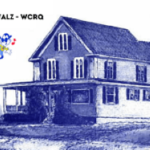Gambling Control Unit and Agency Partners to Meet with College Athletic Directors ahead of Sports Wagering Rollout
College students have a higher risk of harm due to multiple factors
The rollout of sports wagering in Maine is expected to take place in November. Before the wagering goes live Maine’s Gambling Control Unit is spearheading an effort to educate college students and athletes about the harmful consequences gambling can cause.
The Gambling Control Unit along with AdCare Maine Problem Gambling Services, and Epic Risk Management will be holding two educational Zoom meetings with college athletic directors across the state this month. The purpose of the meetings is to discuss the risks students and athletes face, the technology that can track illegal gambling activity, and the prevention and treatment options available.
Sports wagering in Maine is prohibited under the age of 21. If you are under the age of 21 or bet for someone under the age of 21 you can face legal repercussions. NCAA sports wagering rules do not allow student-athletes to bet on any sport sponsored by the NCAA including college and professional or to share information for sports wagering purposes.
According to the NCAA, sports wagering activity is widespread on college campuses. It is prevalent among 18- to 22-year-olds, with 58% having engaged in at least one sports betting activity. 67% of students who are living on campus are bettors and tend to bet at a higher frequency. 41% of college students who bet on sports have placed a bet on their school’s teams and 35% have used a student bookmaker.
The negative ramifications that betting can have on students and athletes have already been seen. Recently five students from Iowa State were charged in a sports wagering investigation.
“We feel getting this information directly to Athletic Director’s first will be a good start, with our Unit also being willing to provide individual team discussions on the issue, if requested”, said Gambling Control Unit Director Milt Champion. “Prevention and recovery advocates worry about the increase in those reaching out for assistance and we are preparing and ready to assist when needed.”
“Usually when I talk about the harm some people experience with gambling, I’m talking about the potential for gambling to be addictive in the same way substances are,” said Lori Manson, Problem Gambling Services Coordinator with AdCare Educational Institute in Augusta. “Some people can’t stop, despite recognizing that gambling is causing major problems in their lives. College students have a higher risk of harm due to multiple factors, such as lack of experience, tendency to embrace risk-taking, and peer pressure. Consequences can involve anxiety, depression, substance use, and dropping out of school due to missed classes. I’ve even heard of instances where students dropped out because they lost their student loan money gambling. For college athletes, there are additional consequences which can involve legal problems or being kicked off the team. I’m glad we have an opportunity for stakeholders to come together to discuss ways to prevent problems, and how to find services and resources if problems occur.”
Practice Safe Play
If you are over the age of 21 and you choose to gamble:
- Gambling is a form of entertainment, so only bet what you can afford to spend on entertainment.
- Set limits and stick to them.
- Don’t dig a deeper hole by spending more money to try to win back your losses.
- Never borrow money to gamble.
- Keep track of wins and losses. If you focus only on wins, you may not realize you’ve lost more than you’ve won.
- Gambling should not interfere with school, work, or time with family and friends.
- Balance recreational gambling with other healthy activities.
- Gambling should be fun. If it’s stressing you out, stop. If you can’t stop, call 211 for resources.
Colleges and Universities:
- Talk to Epic Risk Management about booking a no-cost educational session for your athletes and staff through their contract with the NCAA.
- Invite AdCare Maine Problem Gambling Services to campus activities where a responsible gambling & problem gambling resource table would be appropriate.
- Invite Gambling Control Unit personnel to individual team meetings to address concerns and answer questions.
- Post information about responsible gambling, symptoms of problem gambling, and the helpline. Posters and brochures are available at no cost.
Help is Available
211 is Maine’s Problem Gambling Helpline. If you are concerned about your gambling or the gambling of a loved one, 211 Maine employs live specialists who are available 24/7 with information about resources and services. Dial 211 or text your zip code to 898-211
